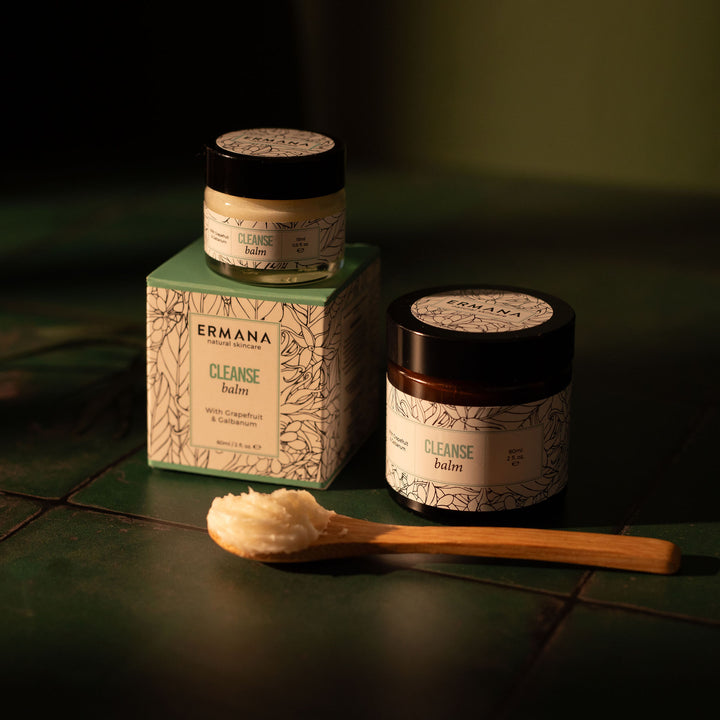
In the quest for youthful, radiant skin, collagen often takes centre stage. This structural protein is renowned for its role in maintaining skin elasticity and firmness. However, amidst the plethora of collagen-infused skincare products and supplements flooding the market, it's crucial to separate fact from fiction. Let's delve into the science behind collagen, exploring whether topical applications truly boost collagen levels and if oral supplements live up to their claims.
What is Collagen?
Collagen is a protein that plays a crucial role in the structure and health of our skin, bones, muscles, tendons, and ligaments. It is the most abundant protein in the human body, making up about one-third of our total protein content. Collagen provides strength and elasticity to various tissues, helping to maintain their integrity and youthful appearance.
Collagen is a fibrous protein made up of amino acids, primarily glycine, proline, and hydroxyproline. These amino acids form a triple helix structure, creating a strong and resilient protein that can withstand tension and stretching. There are several types of collagen found in the body, but the most abundant types are types I, II, and III.
What Does Collagen Do?
Collagen serves several important functions in the body:
- Skin Health: Collagen is a major component of the skin's extracellular matrix, providing structure and support. It helps maintain skin elasticity, firmness, and hydration, giving it a youthful appearance. As we age, collagen production naturally declines, leading to wrinkles, sagging skin, and loss of elasticity.
- Joint Health: Collagen is found in the cartilage that cushions and protects joints. It helps maintain joint flexibility and mobility, reducing the risk of injuries and degenerative conditions like osteoarthritis.
- Bone Health: Collagen provides the framework for bone mineralisation, contributing to bone strength and density. It helps prevent fractures and supports overall bone health.
Does Topical Collagen Increase Skin Collagen Levels?
The concept of applying collagen directly to the skin to enhance collagen production seems intuitive. After all, collagen is a key component of the skin's structure. However, scientific evidence suggests otherwise. The molecular size of collagen is too large to penetrate the skin effectively, rendering topical collagen largely ineffective at increasing collagen levels in the deeper layers of the skin.
A study published in the Journal of Cosmetic Dermatology concluded that collagen molecules applied topically cannot penetrate the skin barrier sufficiently to stimulate collagen synthesis effectively. Instead, they primarily function as moisturisers, temporarily improving skin hydration and elasticity without significantly impacting collagen levels.
How to Stimulate Collagen Production Naturally:
While topical collagen may offer hydration benefits, stimulating collagen production requires a different approach. Several proven methods can help enhance collagen synthesis within the skin:
- Retinoids: Retinoids, derivatives of vitamin A, have been extensively studied for their ability to boost collagen production. They work by promoting cell turnover and stimulating the production of new collagen fibres.
- Vitamin C: As a potent antioxidant, vitamin C plays a crucial role in collagen synthesis. It helps to stabilise collagen molecules and promotes the production of enzymes necessary for collagen formation.
- Peptides: Certain peptides have demonstrated the ability to stimulate collagen production when applied topically. These peptides penetrate the skin more effectively than whole collagen molecules, promoting collagen synthesis and skin rejuvenation.
- Sun Protection: Ultraviolet (UV) radiation from the sun accelerates collagen breakdown in the skin. Protecting your skin from sun damage with broad-spectrum sunscreen helps preserve existing collagen and prevent premature ageing.
- Laser Therapy: Laser treatments, such as fractional laser resurfacing, stimulate collagen production by causing controlled damage to the skin, triggering the body's healing response. Over time, this leads to the formation of new collagen fibres and improved skin texture and firmness.
- Microneedling: Microneedling involves using tiny needles to create micro-injuries in the skin, stimulating collagen production and enhancing the penetration of skincare products. It can improve skin texture, reduce wrinkles, and increase collagen levels in the skin.
Apricot Oil is rich in both Vitamin A and C which is why we use it as one of our main ingredients in our face oils. This nutrient rich oil contains a significant amount of beta-carotene, which is a precursor to vitamin A. Beta-carotene is a carotenoid pigment found in many fruits and vegetables, imparting a vibrant orange color. In the body, beta-carotene is converted into active vitamin A (retinol), which plays a crucial role in skin health. Vitamin A is known for its ability to promote skin cell turnover and stimulate collagen production.
Apricot oil also contains vitamin C, a powerful antioxidant that plays a vital role in skin health and rejuvenation. Vitamin C, also known as ascorbic acid, is essential for collagen synthesis, helping to promote the production of new collagen fibres in the skin.
Do Collagen Supplements Improve Collagen Production?
Collagen supplements, taken orally, have gained popularity as a way to boost collagen production and improve skin health. These supplements typically contain collagen peptides derived from animal sources, such as bovine or marine collagen. While some studies suggest that collagen supplements may have benefits for skin health, the evidence is mixed, and more research is needed to confirm their effectiveness.
A systematic review published in the Journal of Drugs in Dermatology in 2019 found that collagen supplements may improve skin hydration, elasticity, and wrinkling, particularly in women over 50 years old. However, the authors noted that the quality of the evidence was low, and further studies are needed to establish the optimal dosage and duration of treatment.
Another study published in the Journal of Cosmetic Dermatology in 2018 found that collagen supplementation improved skin elasticity and moisture content in postmenopausal women, suggesting potential benefits for aging skin.
Overall, while collagen supplements may have some benefits for skin health, they are not a substitute for a healthy diet and skincare routine. Eating a balanced diet rich in collagen-boosting nutrients, such as vitamin C, and using topical skincare products that promote collagen production are also essential for maintaining youthful and healthy skin.
In conclusion, collagen is a vital protein that plays a crucial role in the health and integrity of our skin, joints, and bones. While topical collagen may have limited effectiveness in increasing collagen production in the skin, there are other proven methods, such as retinoids, peptides, and laser therapy, that can stimulate collagen synthesis and improve skin health. Collagen supplements taken orally may also have benefits for skin health, but more research is needed to confirm their effectiveness and optimal usage. Ultimately, adopting a comprehensive approach that includes a healthy diet, skincare routine, and targeted treatments is the best way to support collagen production and maintain youthful and radiant skin.
Photo by Nataliya Melnychuk on Unsplash

